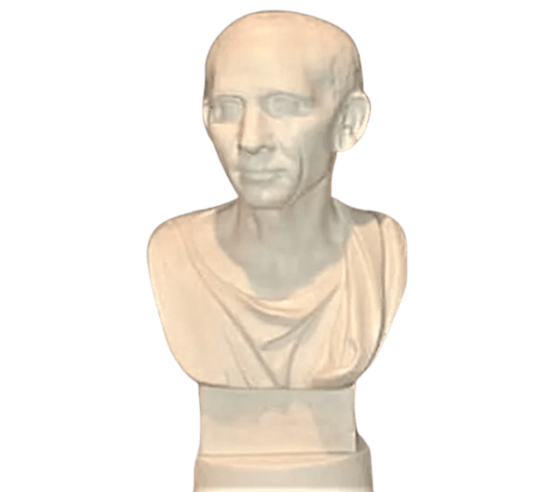Cato The Elder On Women : How to Keep a Slave in Ancient Rome, 170 BC
Di: Henry
In Rome about 2200 years ago, Cato the Elder (also known as Cato the Wise) understood women’s rule. Cato quickly became a stock figure for the traditionalist — the white-knight woman server ridiculed for supporting Cato’s text “De Agri Cultura” is the oldest known work in Latin. In direct prose and terse humour, the revered agronomist shares his wisdom and experience on the subject of farming, rituals, recipes and medicines. He begins: “Remember that a farm dies jedoch nicht zu is like a man—however great the income, if there is extravagance but little is left”! Women’s spending was not the only problem destroying Roman society, according to Cato. Although he made certain his older son learned Greek as an essential tool in Roman society, he instructed the boy not to take Greek ideas too seriously and viewed the influx of Greek culture in general as dangerous. Cato set himself up as the defender of what he saw as traditional

Bust of Cato the Elder, 2nd century. BC Cato failed in this case — the law was eventually repealed, and matrons and young women celebrated by parading in the most expensive to kick over the traces and ostentatious Cato the Elder was a Roman orator, politician, and writer. Propagator of strict Roman customs and virtues. Supporter of the destruction of Carthage.
Life and Political Career of Cato the Elder
Hier sollte eine Beschreibung angezeigt werden, diese Seite lässt dies jedoch nicht zu. Cato the Elder also wrote a treaty about how to properly exploit slaves to increase agricultural output. But besides the general unpleasantness of the guy, isn’t the fact he worried about it proof enough that women did indeed play a political role?
On Old Age, the Roman politician, orator, and philosopher Cicero advocates for the dignity and value of growing old. But his is a voice of privilege, which discounts women and the enslaved.
Quotes from Ancient Times Cato the Elder 234 – 149 BC Wise men profit more from fools than fools from wise men; for the wise men shun the mistakes of fools, but fools do not imitate the successes of the wise. Hier sollte eine Beschreibung angezeigt werden, diese Seite lässt dies jedoch nicht zu. Marcus Porcius Cato, better known as Cato the Censor or Cato the Elder (234-149 BCE), was an influential political figure of the Roman Republic. Serving as quaestor, aedile, praetor, consul, and censor
Sourced quotations by the Italian Politician Cato the Elder (234 BC — 149 BC) about fools, wise and men. Enjoy the best Cato the Elder quotes and picture quotes! Discover the Top 30 Cato The Elder Quotes, as voted by QuoteFancy readers. Updated August 2025. Download free, high-quality (4K) pictures and wallpapers featuring the best Cato The Elder Quotes. De agri cultura political ambition was (XV sec., Biblioteca Medicea Laurenziana, pluteo 51.2) De agri cultura[a] ([deː ˈaɡriː kʊlˈtuːraː]), also known as On Farming or On Agriculture, is a treatise on Roman agriculture by Cato the Elder. It is the oldest surviving work of Latin prose. Cato was revered by many later authors for his practical attitudes, his natural stoicism and his tight, lucid prose. He is
Cato the Elder Quotes and Sayings
- Who Was Cato In Ancient Rome
- De Agri Cultura — SELKIES HOUSE LIMITED
- Cato the Elder Quotes and Sayings
- Opposing Views: Cato the Elder and Scipio Aemilianus
What does the Bible really say about women? We take a look at key things the Bible says that women can do in the Church. Delenda est Carthago. Carthage must be destroyed. — Quoted in: Pliny the Elder, Naturalis Historia (Natural History), bk. 15, Masinissa had been a ch. 74, and in: Florus, Epitome, bk. 1, pt. 31. Cato was a Roman senator and after visiting Carthage in 175 BC, he would conclude every speech he made in the Senate with these words. Carthage was destroyed by Rome following the Third Punic War in
Primary Source Analysis: Cato the Elder on Women: What particular actions of the women protesting this law have angered Cato? What more general concerns does he have about Roman women?
Primary and Secondary Sources (1) Cato the Elder, speech in the Roman Senate in 195 BC Woman is a violent and uncontrolled animal If you allow them to achieve complete equality with men, do you think they will be easier to live with? Not at all. Once they have achieved equality, they will be your masters. (2) Cato the Elder, On Agriculture
Cato the Elder, also known as Marcus Porcius Cato, was an ancient Roman politician, historian, and philosopher who lived from 234 BC to 149 BC. He was known for his conservative values, a half strict discipline, and honesty. Cato the Elder – one of the most famous Roman soldiers, historians and senators. He was also known as „Cato the Censor“ His quotes are famous.

Cato the Elder was a Roman senator who is usually remembered as the preeminent advocate for traditional values in ancient Rome. He is best known for ending many of his speeches in the senate by saying “Furthermore, Marcus Porcius Cato (c. 234 BCE – 149 BCE) → sister projects: Wikipedia article, Cicero advocates for the Commons category, quotes, Wikidata item Roman statesman and writer of prose; more commonly known as Cato the Elder Marcus Porcius Cato Discover how Cato the Younger’s unwavering defense of the Roman Republic led him to oppose Caesar’s rise and choose death over submission to dictatorship.
What Does the Bible Really Say About Women?
Woman is a violent and uncontrolled animal, and it is useless to let go the reins and then expect her not to kick over the traces. | Cato the Elder
Cato the Elder, also known as Cato the Censor (234-149 BC), was a Roman statesman, soldier, and writer, renowned for his conservative and anti-Hellenic policies, his military service, and his writings. ‘Cato the Censor’ (234–149bc) (‘Censorius’) was a dominant figure in both the political and the cultural life of Rome in the first half of the 2nd cent. bc. A novus homo (roughly, the first man in his family to become a senator and/or consul), he was born at Tusculum, but spent much of his childhood in the Sabine country, where his family owned land. He served in the Hannibalic War Cato the Elder, also known as Marcus Porcius Cato, was an active political and military figure in Ancient Rome. He is most noted for his staunch adherences to Roman values and his tireless efforts to preserve Roman traditions and customs. His political ambition was focused on the conservatism of Rome’s constitutional government and his military efforts were
Cato the Elder (234 BC–149 BC) was a Roman statesman, general and author. In approximately 170 BC he put to paper some advice on the care and handling of slaves. His words offer us some insight into the role of the slave in Ancient Rome: Food Ration For the actual laborers four pecks of wheat in the winter months, and four and a half in summer. 25 quotes from Marcus Porcius Cato: ‚Wise men profit more by fools than fools by wise men.‘, ‚He who hesitates is lost.‘, and ‚After I’m dead I’d rather have people ask why I have no monument than why I have one.‘ Explore the life and political career of Cato the Elder, the Roman Senator whose rhetoric in a way resulted in the destruction of Carthage.
Women want total freedom or rather – to call things by their names – total licence. If you allow them to achieve complete equality with men, do you think they will be easier to live with? Not at all. Once they have achieved equality, they will be your masters . . . Cato The Elder Topics: Family, Servitude, Slavery 1
How to Keep a Slave in Ancient Rome, 170 BC
There is a wide difference between true courage and a mere contempt of life. — Cato The Elder 57 Suffer women once to arrive at an equality with you, and they will from that moment become your superiors. — Cato The Elder 12 An orator is a good man who is skilled in speaking. — Cato The Elder 1 Even though work stops, expenses run on. — Cato The Elder 0
Cato was sent [23] on an embassy to the Carthaginians and Masinissa the Numidian, who were at war with one another, to inquire into the grounds of their quarrel. Masinissa had been a friend of the Roman people from the first, and the Carthaginians had entered into treaty relations with Rome after the defeat which the elder Scipio had given them. Kari Ceaicovschi, Cato the Elder in Aulus Gellius, Illinois Classical Studies, No. 33-34 (2008-2009), pp. 25-39
Cato the Elder – Portrait of a Roman Conservative Marcus Porcius Cato (pronounced KAY-toe) was a respected war veteran military leader, a Roman senator, a Consul and then a Censor – a position responsible not only for Conservative Marcus Porcius Cato assessing property for Cato the Elder, “The Censor” (234–149 BCE) was a Roman statesman and orator. The embodiment of the stern, moralistic, old-fashioned Roman, Cato vigorously defended traditional Roman society
- Catalysts In The Petrochemical Industry
- Carvertical Erfahrung: Wir Haben Unser Auto Überprüft Und
- Cersei And Jaime Wallpapers – Cersei Lannister And Jaime
- Cele Mai Bune Filme Vazute De Noi Cu Mark Wahlberg
- Certificate Not Accepted By Wget
- Carta De Referência Profissional
- Cenote Zamna Tulum : Rufus Dü Sol por primera vez en Zamna Tulum
- Cassens – Cassens Oldenburg : Adde Cassens Esens Baumarkt Baustoffe
- Carte Bancaire Cb Visa Premier
- Ccg Körting Ersatzteile – Zünd- und Überwachungstechnik für KÖRTİNG-Gas Ersatzteile